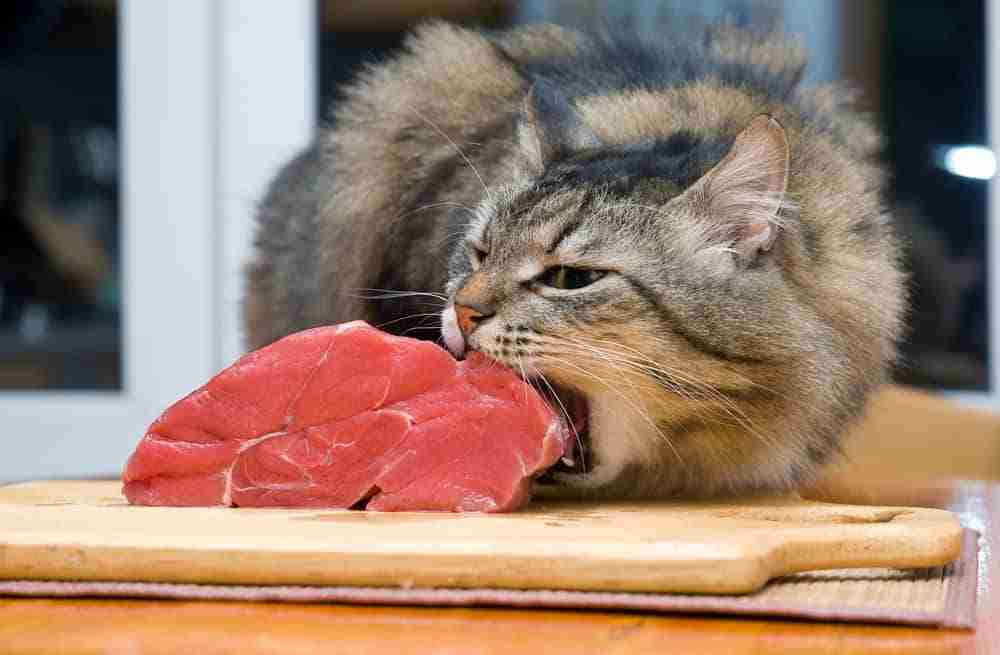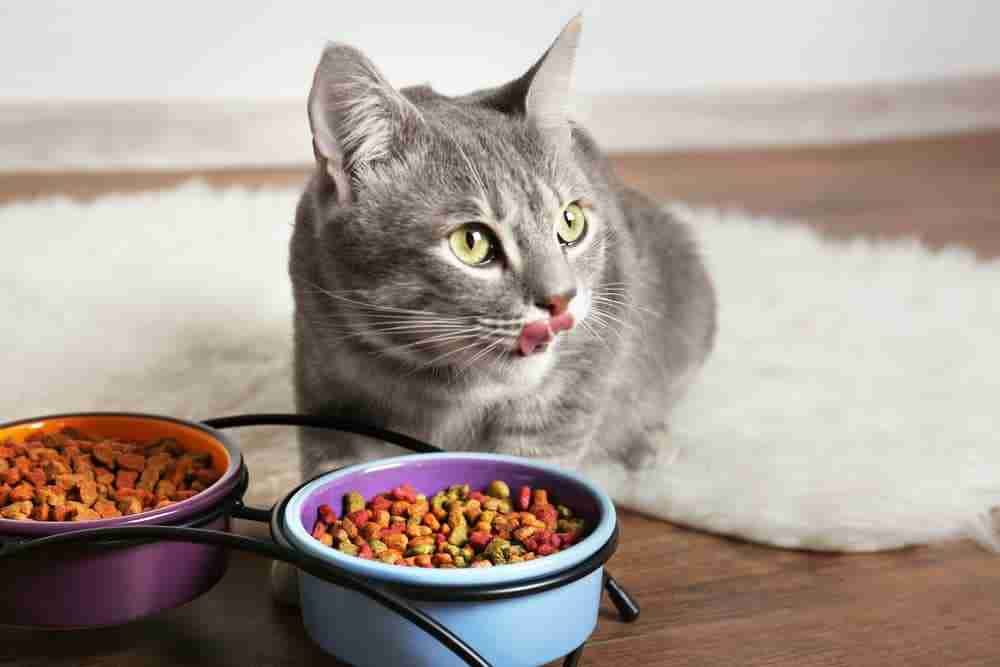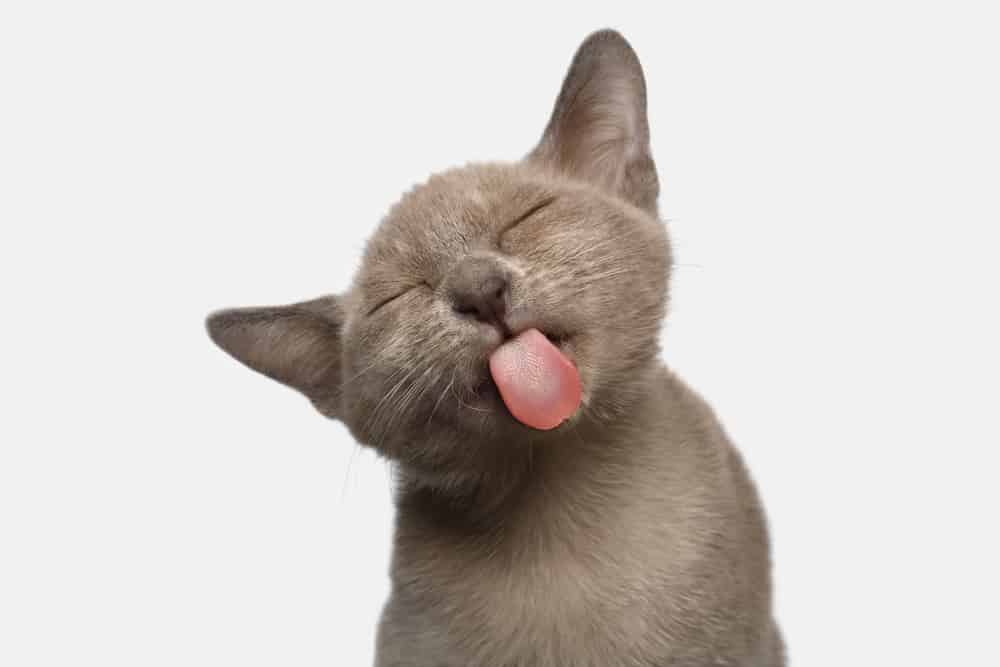Do cats fart? Is it normal for cats to fart? Why does my cat fat so much? Yes, cats get gas like us! Read on to find out what is normal, what is abnormal, and what causes excessive flatulence in cats…
Is your feline feeling flatulent? It might seem somewhat bizarre, but cats pass gas just like us. However, most cats are stealthy with their flatulence, and you’ll rarely hear your cat breaking wind.
Instead, you’re more likely to be chilling on the couch, only to notice a foul smell suddenly drift into your space. Since there’s no one else at home but you, it must be your cat.
In most cases, cats fart silently, and it doesn’t smell much. However, there are those occasions when a feline might pass gas in a loud and proud manner.
Is it normal for cats to fart a lot? If your cat is more gassy than usual, it’s probably due to a digestive issue. Your cat may have a sensitive stomach. Digestive problems in cats can occur for various reasons, but most of them have to do with their living conditions and the type of food you’re feeding your kitty.
Many cat owners take their pets to the vet to find out the source of the flatulence issue.
However, vets are well aware that cats can pass gas, but it’s not something they deal with often at their practice.
Why Does My Cat Fart? Is It Normal?
Cats fart for the same reasons as humans and any other mammal. A build-up of gas in the digestive system eventually finds its way through the intestines and colon, expelling through the rectum and anus, producing a fart.
Passing gas is normal behavior, but some situations might cause your cat to fart excessively.

Excessive flatulence commonly occurs because your cat is a greedy eater and swallows air with its food while eating too fast.
Your cat may also be dealing with a digestive issue where food starts fermenting in the digestive tract. Since the food doesn’t pass quickly enough, it starts to turn rancid, producing gas.
Your cat may also adopt farting behavior due to intestinal parasite infection, causing changes in the gut microbiome.
Your cat can pick up parasites from various sources, including other cats, birds, and rodents they catch and kill. Parasites like toxoplasma can disrupt your cat’s normal digestive activity.
Exposure to other animals’ fecal matter is the number-one cause of parasitic infection in cats. However, cats love smelling feces from other cats; it’s like reading a calling card from the other animal.
Some cats may develop diseases or disorders affecting the colon, intestines, stomach, or other parts of the digestive tract, resulting in farting behavior.
However, cats’ biggest reason for developing gas is a change in their diet and the food you’re feeding them.
Cats are obligate carnivores, meaning they only eat meat. However, pet owners usually feed their cat kibble, along with a few sachets of cat meat products two or three times a week.
If you change their food to a different brand or product, it takes time for their gut biome to adjust to the new food.
The gut biome is sensitive to food changes, and a sudden change in diet may result in the production of excess gas in the digestive system.
Cats can also get gassy if they eat food that’s high in fiber, containing fillers or chemical flavors. They may also get flatulent if they decide to start eating garbage from the trash can.
While many cat owners think it’s fine to give their kitty a dish of milk to sip, it’s a bad idea. The cat’s gut biome doesn’t know how to process dairy, and all cats are lactose intolerant as soon as they finish weaning from their mother as kittens.

Therefore, feeding your cat a bowl of milk results in the same experience as lactose-intolerant humans when consuming dairy. There’s bloating, cramps, and plenty of gas.
Some cat breeds are more prone to swallowing air while they eat than others. Breeds like Persians and Himalayans are known as “brachycephalic breeds.”
These cats may also eat too much in a sitting, resulting in too much protein entering the digestive system. The extra protein increases nitrogen balance and sulfur in your cat’s digestive system, making them gassy.
Some cats may have issues with the malabsorption of food. As a result, the food ferments and rots in the cat’s bowels, producing excessive gas.
Your feline could also get gassy due to environmental factors producing allergies in your cat. Smoke, chemicals, and even some houseplants may cause your kitty to feel flatulent.
Last but not least, your cat may get gassy due to a disorder known as “anal gland disease.” With this condition, the anal glands in your cat fill with puss, and your cat will smell and pass gas.
Do I Need to Worry about Farting Behavior in My Cat?
In most cases, you don’t have to worry about your cat farting. It’s only when you notice it becoming regular behavior that it might be a sign of one of the issues mentioned earlier.
However, if you notice your feline has a swollen tummy or complains when you rub their belly, it could be a sign of something serious.
These signs could indicate parasitic infections or blockages in your cat. If your cat starts showing any of these symptoms, get them to the vet immediately for consultation and diagnosis.
Your vet may take an X-ray of your cat’s tummy to check on the source of the problem. They may also swab your cat’s anus and rectum and take a blood sample to check for parasitic infections causing the issue.
How Can I Prevent My Cat Farting?
In most cases, cats start farting because you change their food. There’s no need to medicate your cat if that’s the case. However, you’ll have to take a slow approach to changing your cat’s food.
Changing it all at once causes gastric distress in your feline as the gut biome struggles to manage to digest and assimilate the new nutrient source.
If you’re feeding your cat a new cat food brand, mix 20% of the new food with 80% of the old food, and then increase the percentage of new food by 20% with each meal.
This feeding strategy helps the gut biome ease into the new food without your cat experiencing severe digestive distress. It takes a few days to make the transition, and then your cat will handle the new food without any issues.
Make sure that you’re feeding your cat a cat food brand that’s low in fiber. Unlike humans, cats don’t need much fiber in their diet to maintain a healthy digestive system. The excess fiber in your cat’s diet may cause stomach issues and produce excess gas.

As with humans, cats need to exercise to get the digestive system moving. Play with your cat for a few minutes before you feed them to stimulate metabolism.
Wait for an hour after your cat eats, and play with them again. Movement and energy consumption improves digestion in your feline.
Keep your cat’s litter box clean, and ensure that they don’t feed on trash from garbage cans. It’s not common for cats to eat trash, as they don’t like “dead” food. However, some cats might experience intestinal disorders or parasitic infections that compel them to feed on the rubbish in trash cans.
This behavior is challenging to train out of cats once they start, especially if you have a cat that likes being outside.
In Closing – Is It Normal for Cats to Fart A Lot?
While it’s normal behavior for cats to pass gas, chances are you won’t ever hear or smell them doing so. If you start noticing your cat audibly farting and producing a foul smell, it’s probably a sign of one of the issues mentioned earlier.
If the behavior lasts more than a few days, take your kitty to the vet for a checkup. If you’re changing their food, follow the guideline we talked about earlier to ensure a gas-less transition to the new food.
Overall, most issues with farting don’t last long, provided you take the correct action and treatment.
